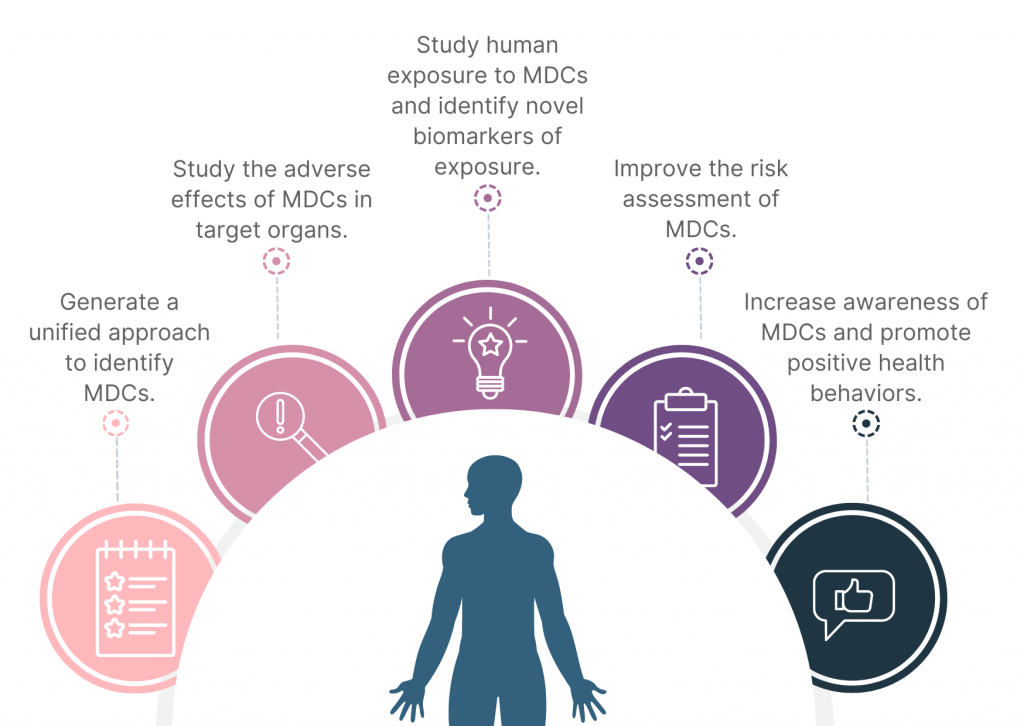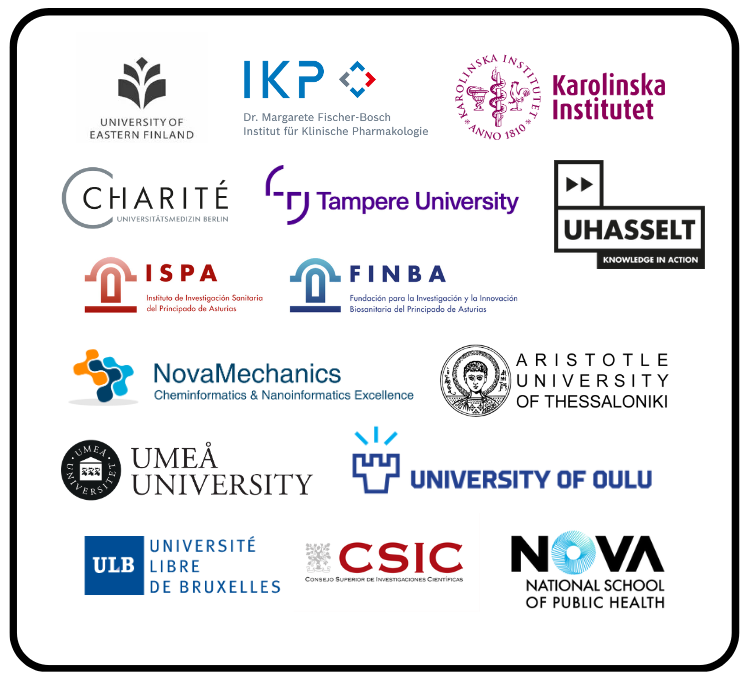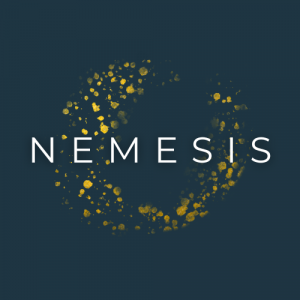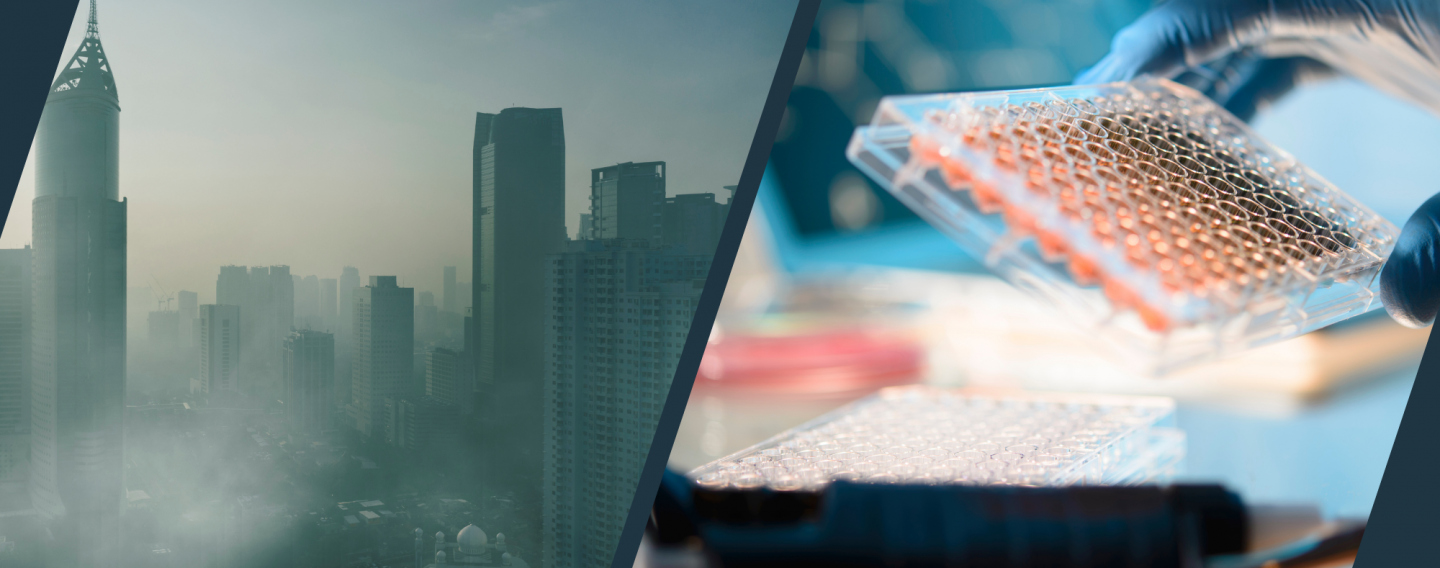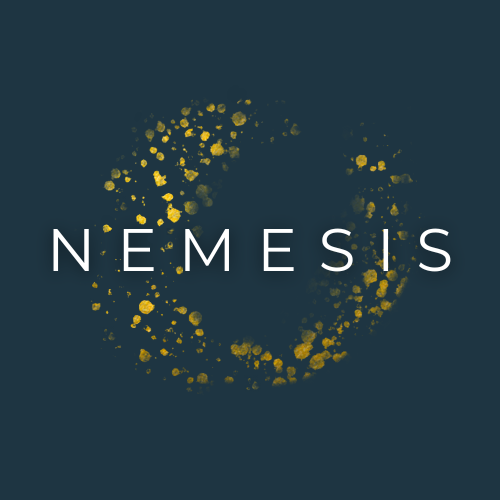Metabolic disrupting chemicals (MDCs) represent a prevalent challenge to human health, as their wide use in consumer products results in unavoidable, continuous exposure to these chemicals. As exposure to MDCs has been linked to increased incidence of metabolic diseases, the NEMESIS project aims to address critical gaps in understanding how this happens, to pave the way for more effective regulatory measures.
Within the project, we will enhance the understanding of how MDCs impact human health, provide insights from biomonitoring data on MDC levels and their mixtures across different regions, increase mechanistic understanding of chemical-induced metabolic disruption, develop predictive computational tools to predict outcomes of exposure, and communicate the project results efficiently to the public to raise awareness and promote health-promoting behaviors. By integrating the project’s findings into regulatory measures, the NEMESIS project aims to enhance the public health of the EU citizens and beyond.
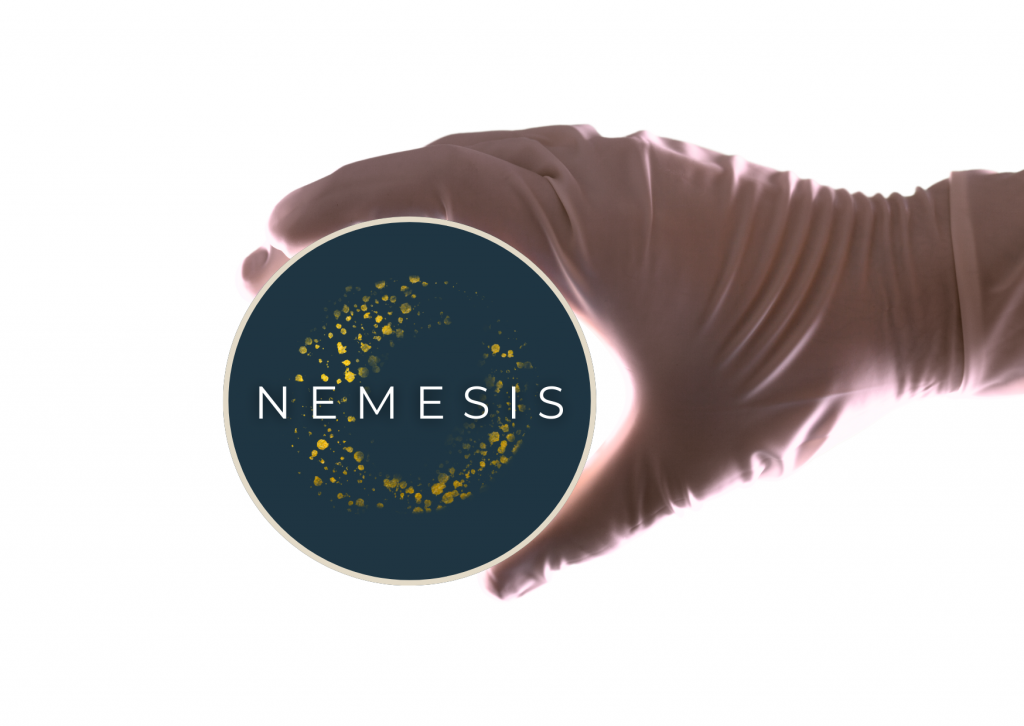
PROJECT AT A GLANCE
